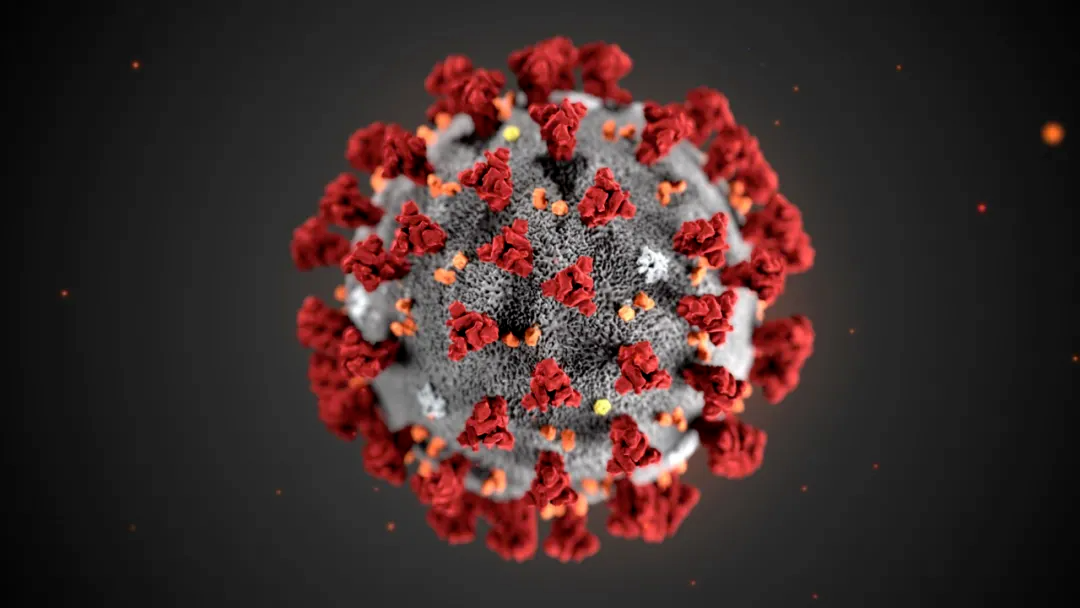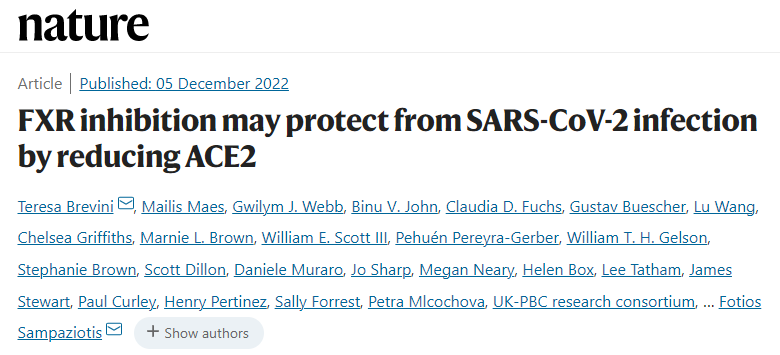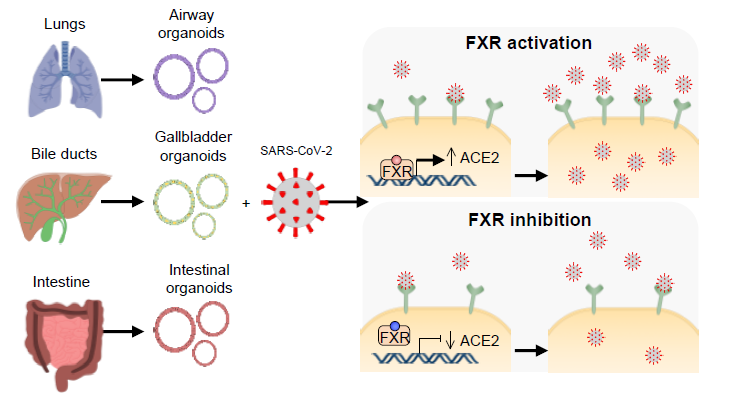
Breaking News about SARS-CoV-2 from NATURE
- Time of issue:2022-12-07
- Views:
(Summary description)If the ACE2 receptor is turned off, wouldn't that prevent all variants?
Breaking News about SARS-CoV-2 from NATURE
(Summary description)If the ACE2 receptor is turned off, wouldn't that prevent all variants?
- Categories:Blogs
- Author:AIVD
- Origin:
- Time of issue:2022-12-07 14:24
- Views:

SARS-CoV-2, usually infects humans through the respiratory tract and causes damage to the respiratory system and various organs of the body. Since the first outbreak in late 2019, SARS-CoV-2 is still rampaging around the world, causing great negative impact on the world economy and society.
With the massive epidemic of SARS-CoV-2, new mutant strains of the virus have emerged, Alpha, Beta, Gamma, Delta, Omicron, etc. Some of these mutant strains have stronger infectious ability or stronger immune escape ability, and the Omicron mutant strain is currently the most concerned one worldwide.
Previous studies have shown that SARS-CoV-2 infects mainly by binding to the angiotensin-converting enzyme 2 (ACE2) receptor on human cells through the surface of the stinger protein, which is the protein used by SARS-CoV-2 to recognize host cells and is the main target of the human immune system, and ACE2 is the main entry receptor for SARS-CoV-2.
If the ACE2 receptor is turned off, wouldn't that prevent all variants?
On December 5, 2022, researchers from the University of Cambridge, UK, published a research paper in the journal "Nature" titled "FXR inhibition may protect from SARS-CoV-2 infection by reducing ACE2."

The study shows that a drug for liver disease, ursodeoxycholic acid (UDCA), shuts down ACE2 receptors, closing the door for the virus to enter cells, and that the drug could be used to prevent SARS-CoV-2 infections. Because the drug targets the host cell rather than the virus, it may prevent future new variants of the virus as well as other SARS-CoV-2 that may emerge.
Vaccines are known to protect us by boosting the immune system so that it can recognize and attack viruses. However, vaccines do not apply to everyone, such as patients with weakened immune systems. In addition, viruses can mutate to escape the antibodies produced by the vaccine. Therefore, it becomes especially important to find alternative ways to protect us from new crown infections.
Starting with type organs and animals
Previously, the study authors had been using types of organs to study bile duct disease. During the organoid studies, the researchers stumbled upon a molecule called FXR that is present in large numbers in these bile duct-like organs, and importantly, FXR can directly regulate the open and closed states of ACE2 receptors.
The researchers also found that a generic drug used to treat liver disease in primary biliary cholangitis, ursodeoxycholic acid (UDCA), can reduce FXR and close ACE2 channels.

In that study, the researchers used the same approach to shut down ACE2 channels in lung-like organs and intestinal organs, two major targets of SARS-CoV-2, to prevent viral infection.
Further, the researchers verified that the drug could prevent infection not only in laboratory-cultured cells but also in living organisms.
In a hamster model infected with the Delta variant of the SARS-CoV-2, the study found that hamsters treated with the UDCA drug were protected from the Delta variant.
Although controlled, randomized trials are needed to confirm these findings, the data provide compelling evidence that UDCA can be used to prevent neostriatal development, the researchers said.
Analysis of human organs
Next, the researchers analyzed human lungs to further verify whether the findings in hamsters apply to human lungs exposed to SARS-CoV-2.

Researchers used a ventilator to allow two donor lungs to breathe outside the body and a pump to circulate blood-like fluid through the lungs to keep the organs functional, and both lungs were exposed to the virus, with one being given UDCA drugs. The results showed that the lung that received the drug was not infected, while the other lung was.
From organs to humans
Finally, the researchers recruited eight volunteers to test the UDCA drug by wiping their noses and found lower ACE2 levels, suggesting that the virus had a lower chance of invading and infecting their nasal cells.
Although a full clinical trial was not possible, the researchers analyzed data from two independent patient cohorts with new coronary infections, comparing those who had taken UDCA for liver disease with those who did not take the drug, and found that patients who received UDCA were less likely to develop severe new coronary pneumonia and be hospitalized.
Summing up
The researchers say that it took a lot of work to find an existing drug that can close the door for SARS-CoV-2 to enter cells and protect us from SARS-CoV-2. Importantly, because this drug acts on our cells, it is unaffected by viral mutations and should be effective even if new mutations occur.
In addition, UDCA has been in clinical use for many years, so we know it is safe and well tolerated, and the tablets are inexpensive, can be produced quickly in large quantities, and are easy to store or ship.
The researchers emphasize that we are optimistic that this drug could be an important weapon in our fight against the SARS-CoV-2.
Link to the paper:
Related news
Shenzhen AIVD Biotechnology Co. , LTD.
A4 Building 4th Floor / B5 Building C501, China Merchants Bright Technology Park, Fenghuang Street, Guangming District, Shenzhen, Guangdong Province, China
E-mail:
market@aivdbiotech.com
info@aivdbiotech.com
Tel: +86-755-26165742 +86 18543132823
WhatsApp:+86 18543132823
© 2022 Shenzhen AIVD Biotechnology Co.,LTD. 粤ICP备18093805号









